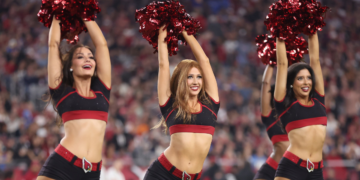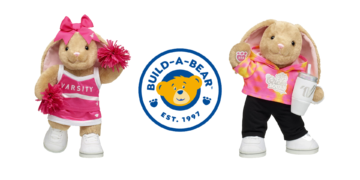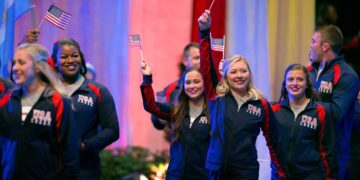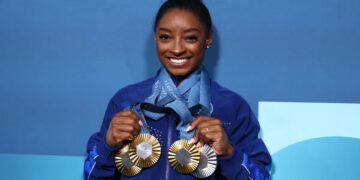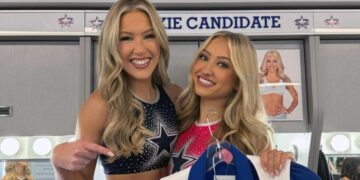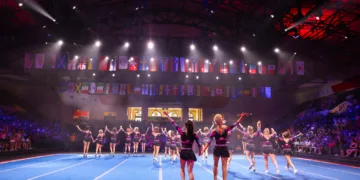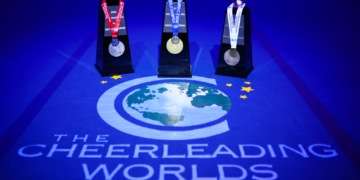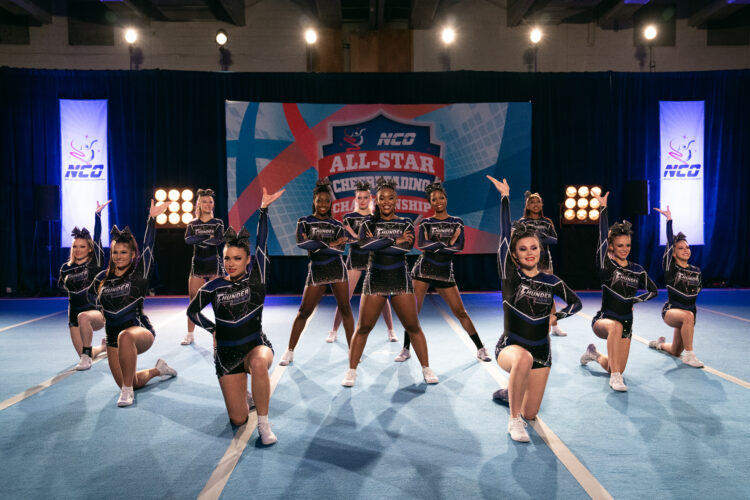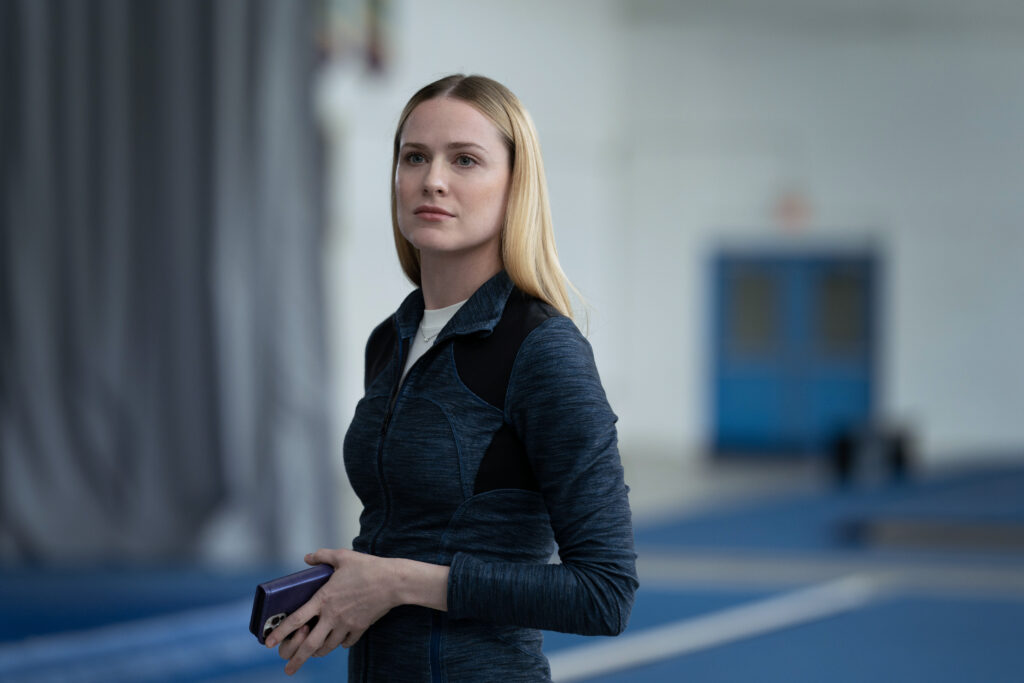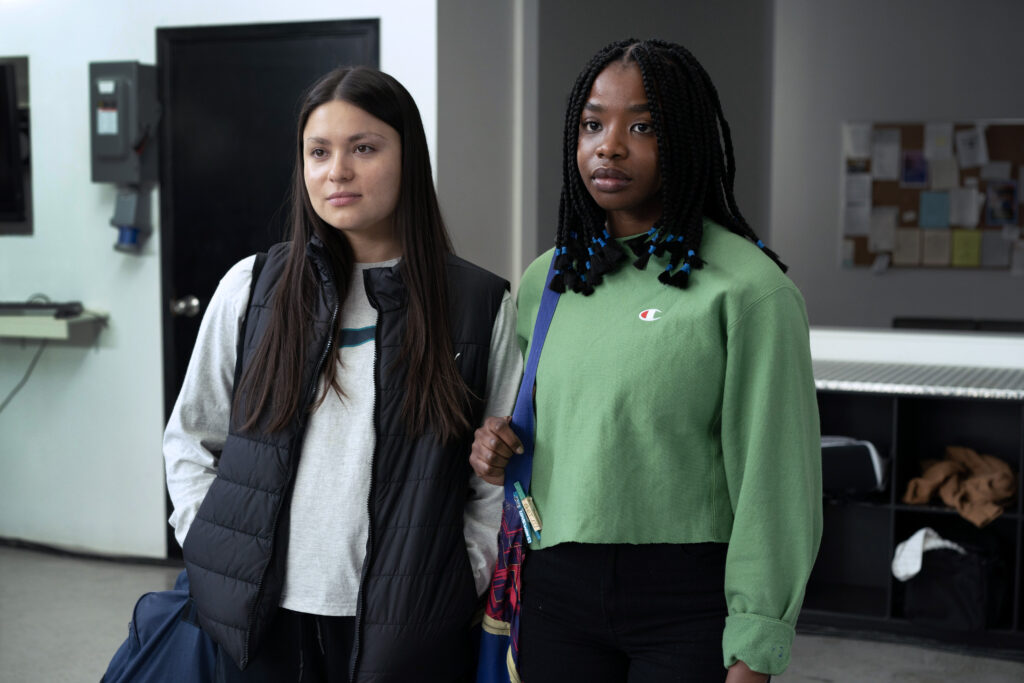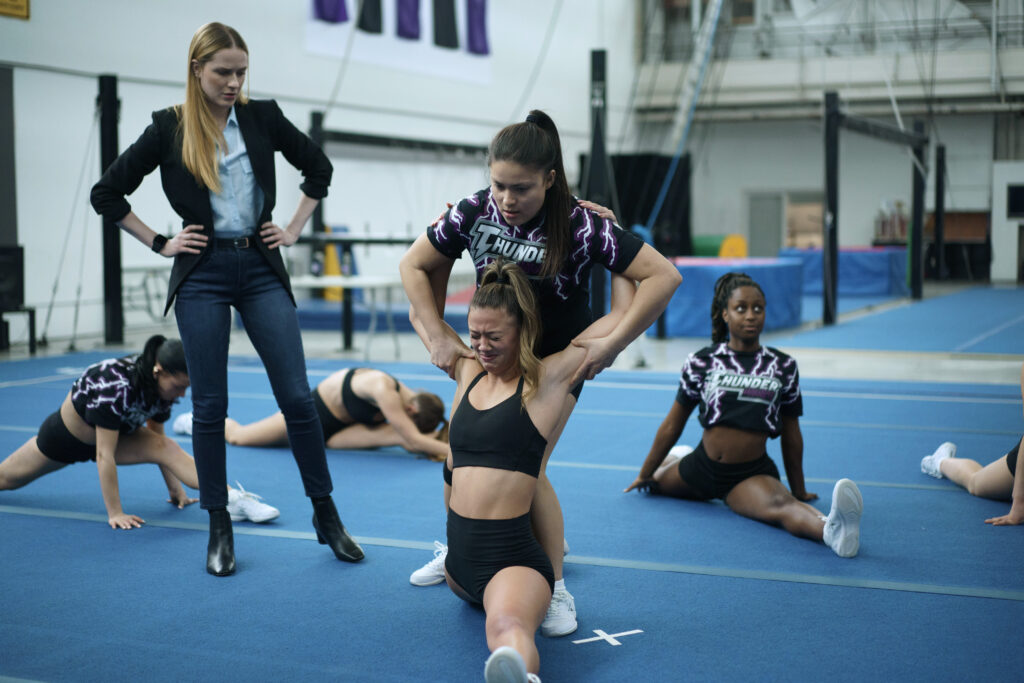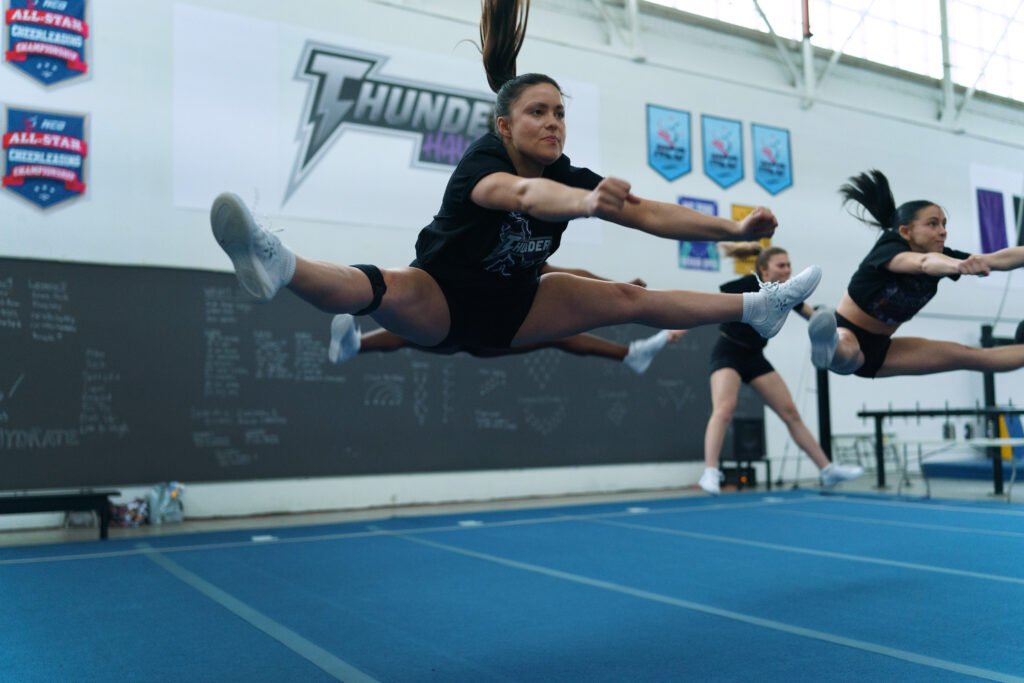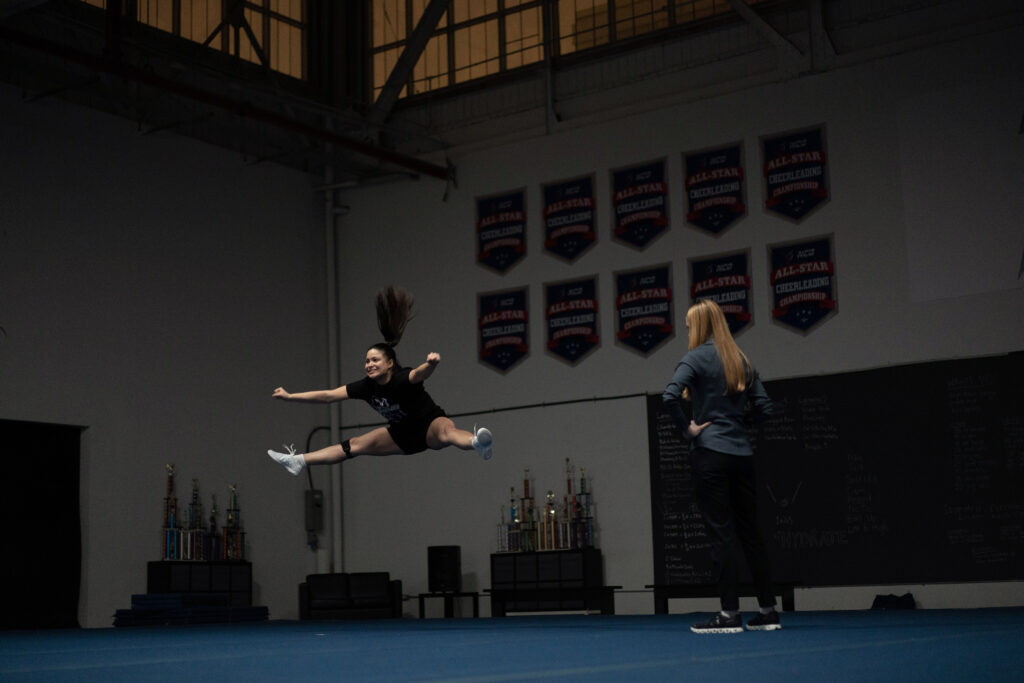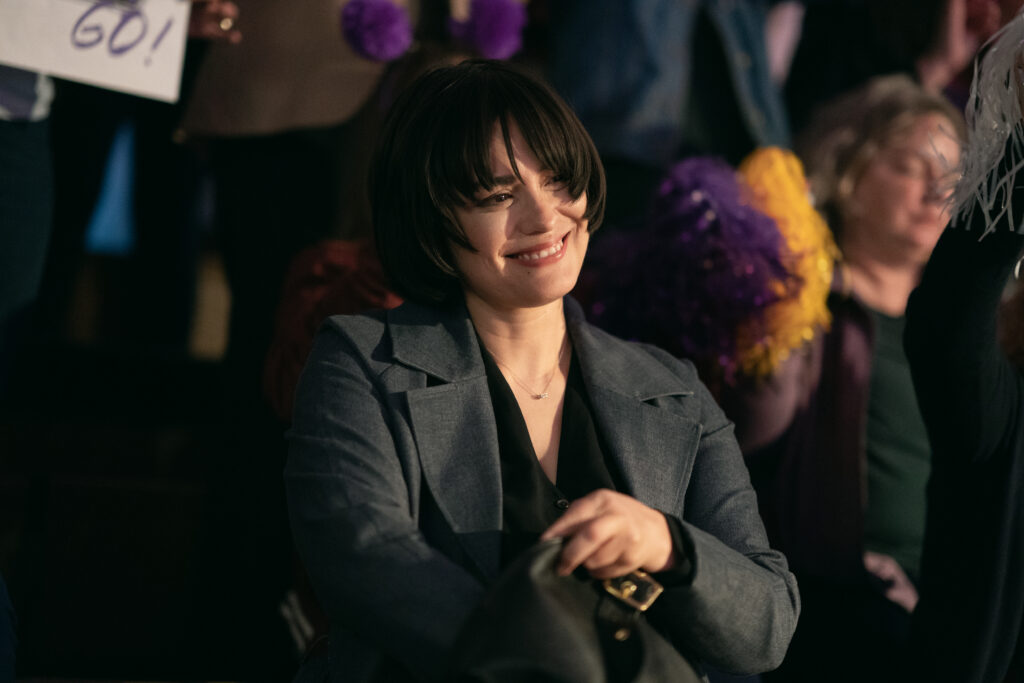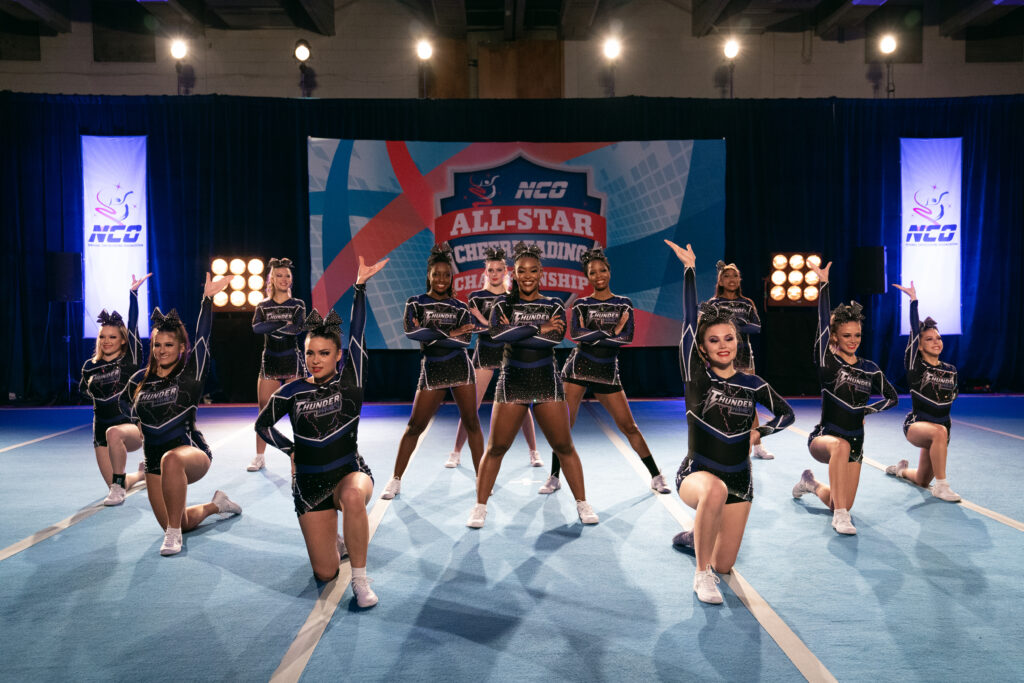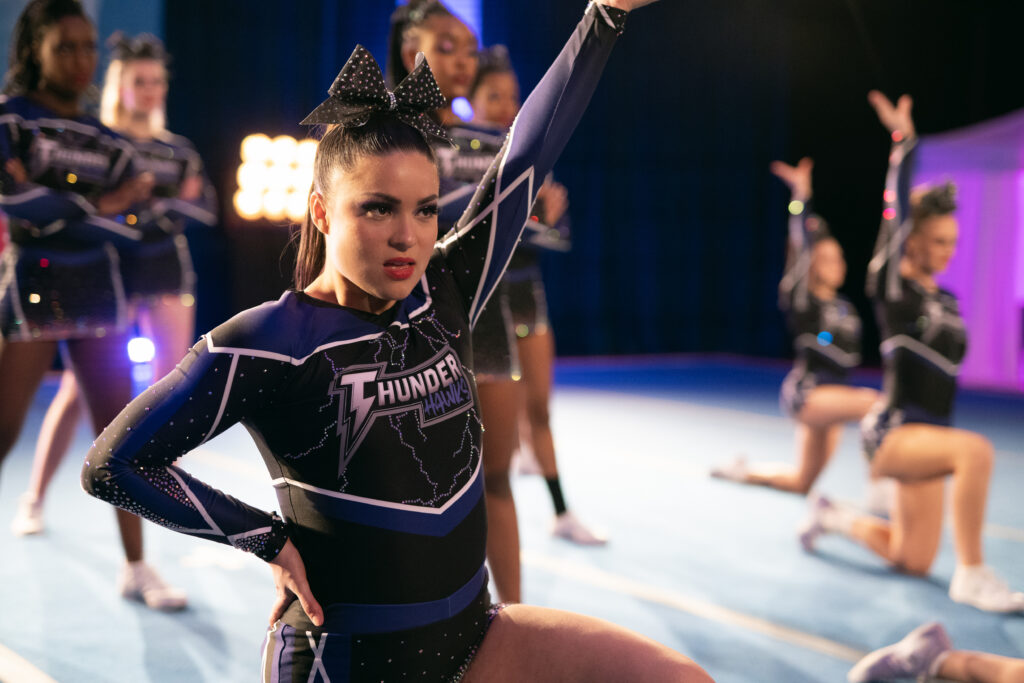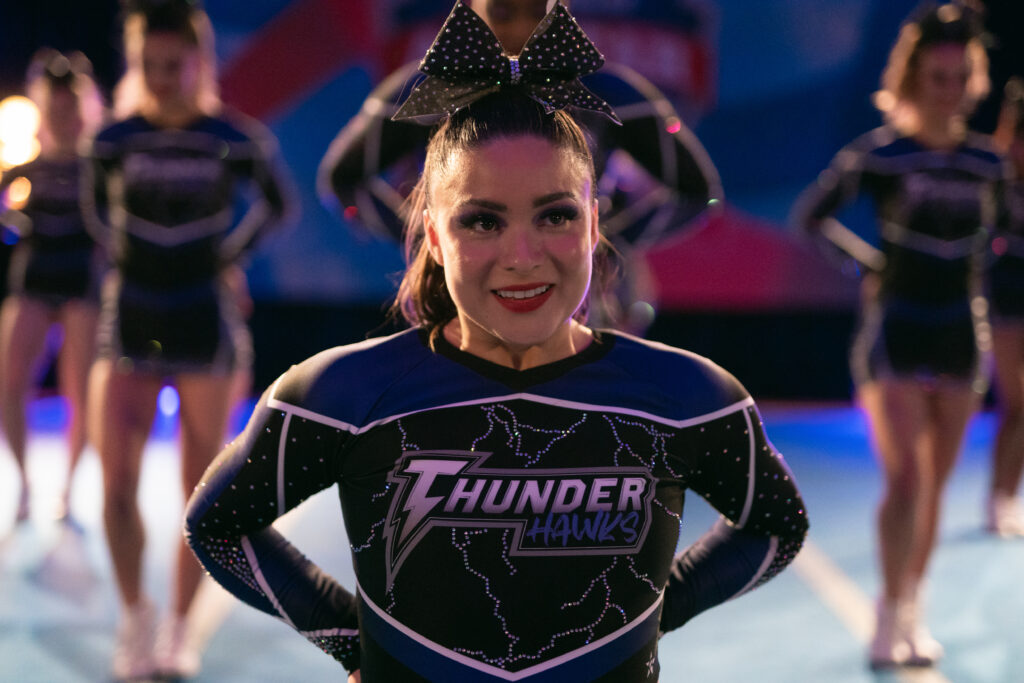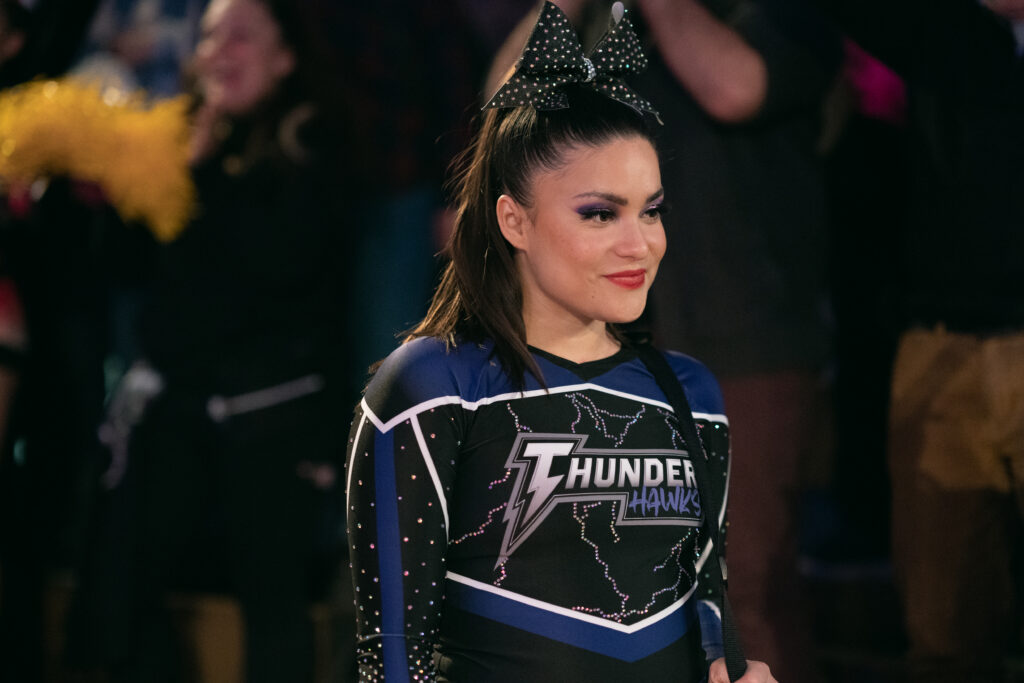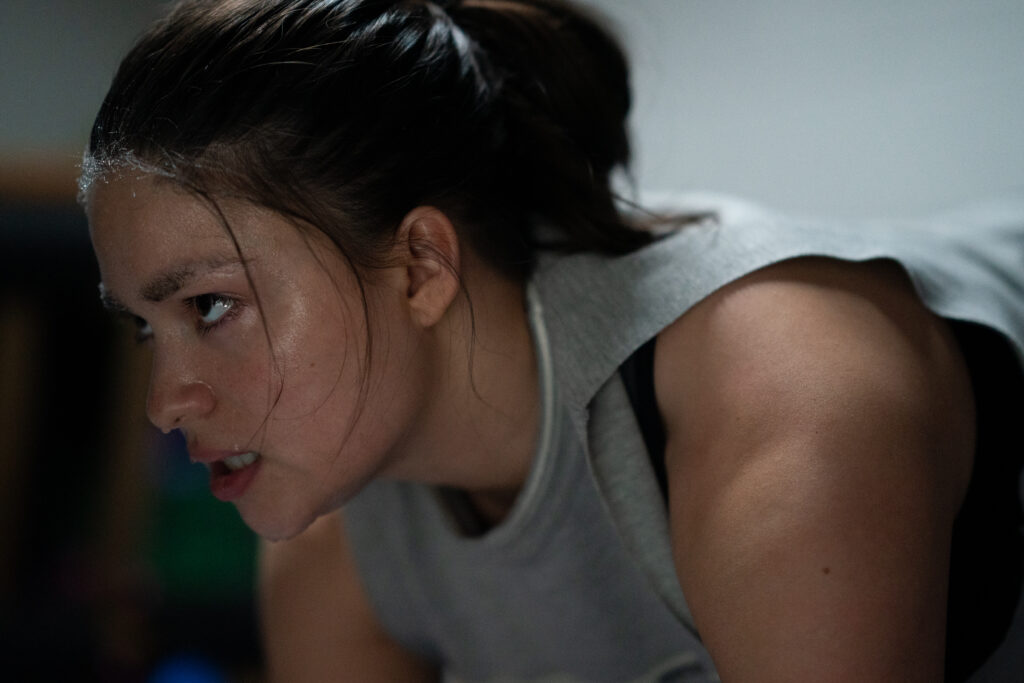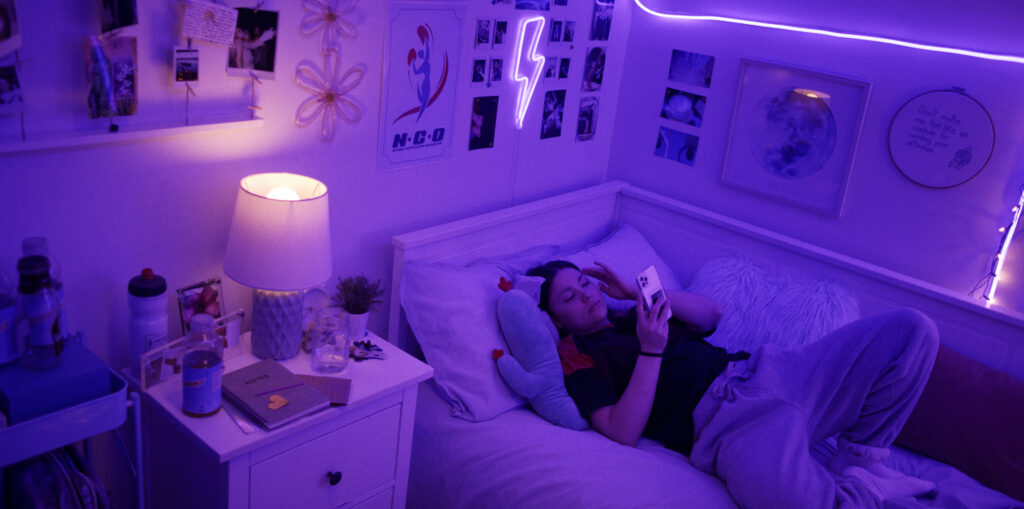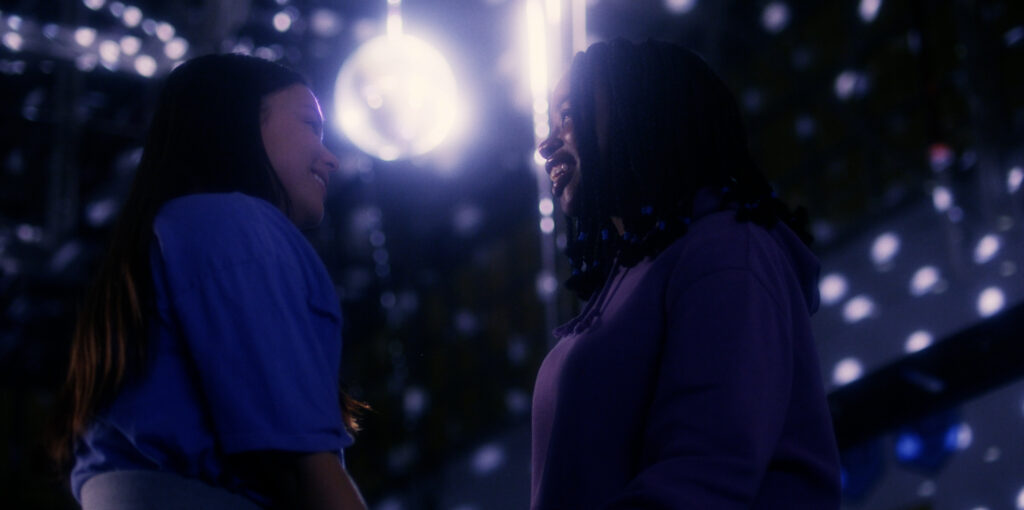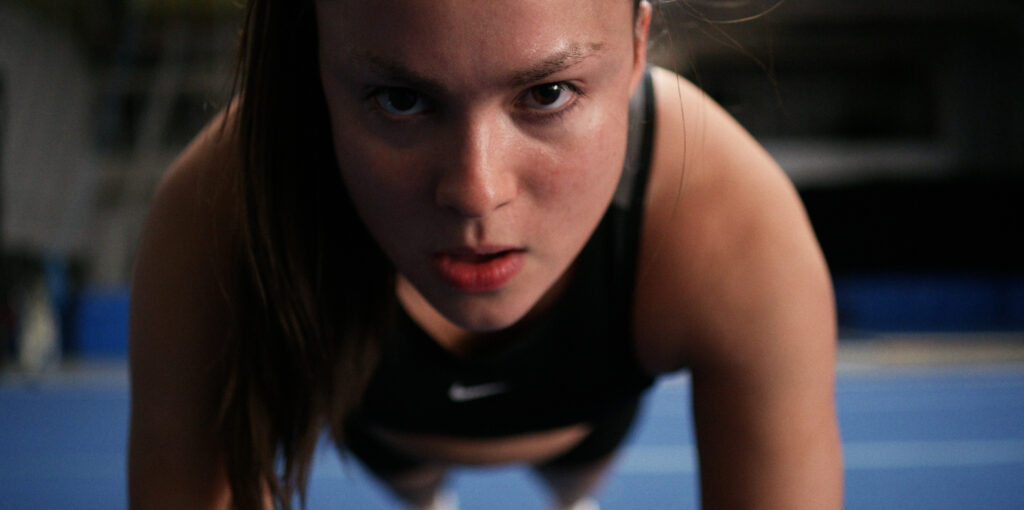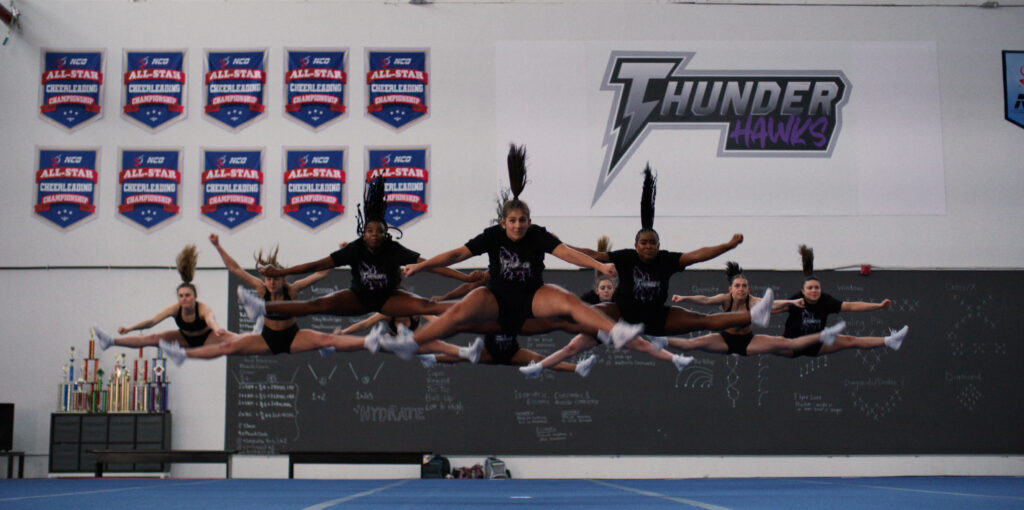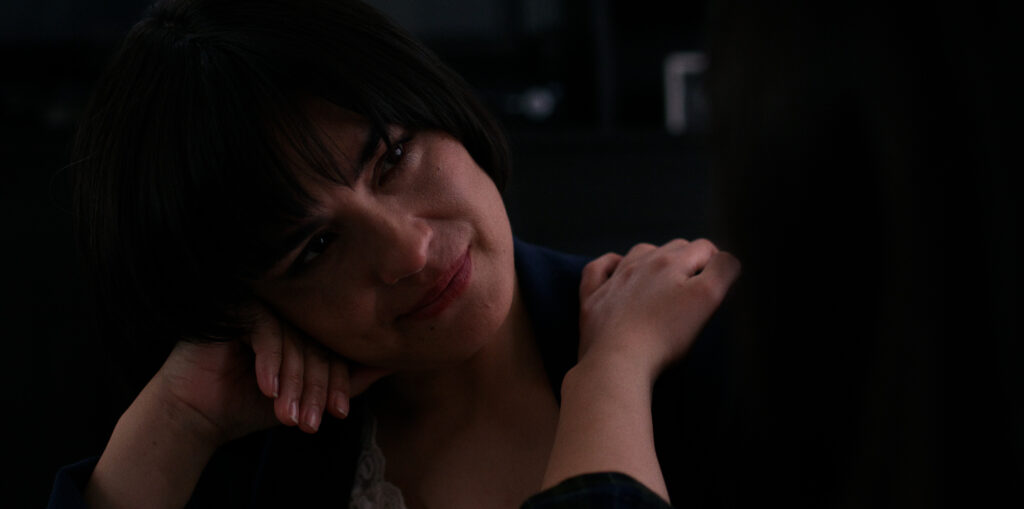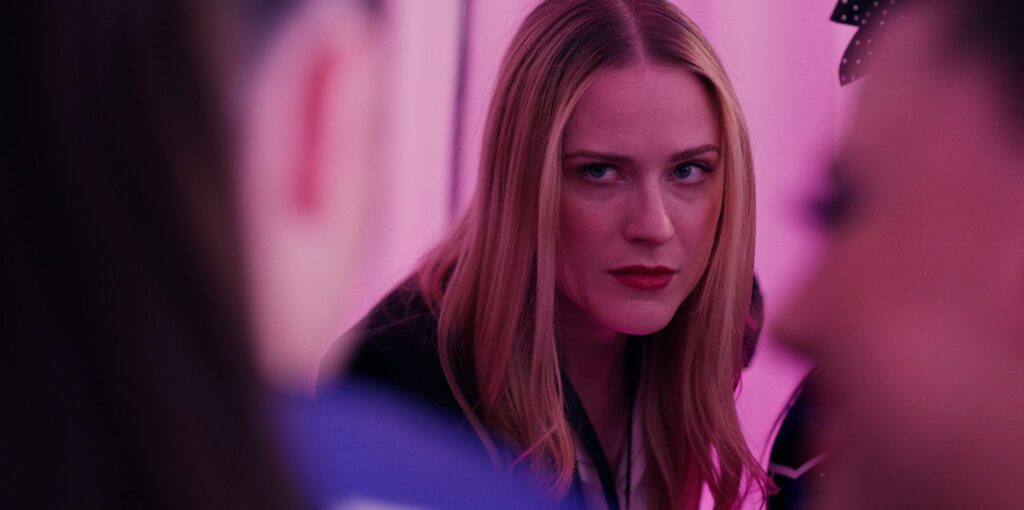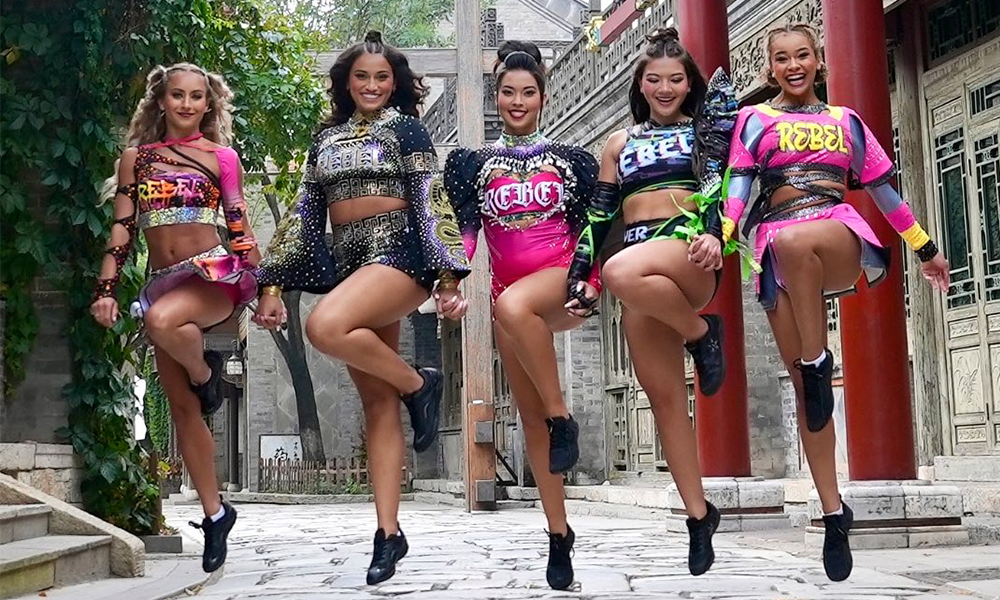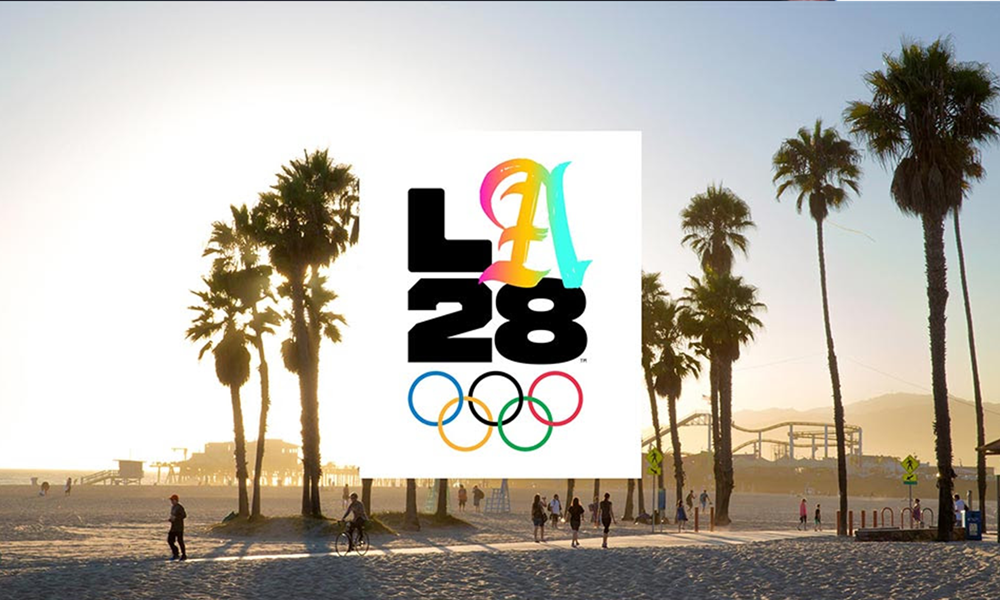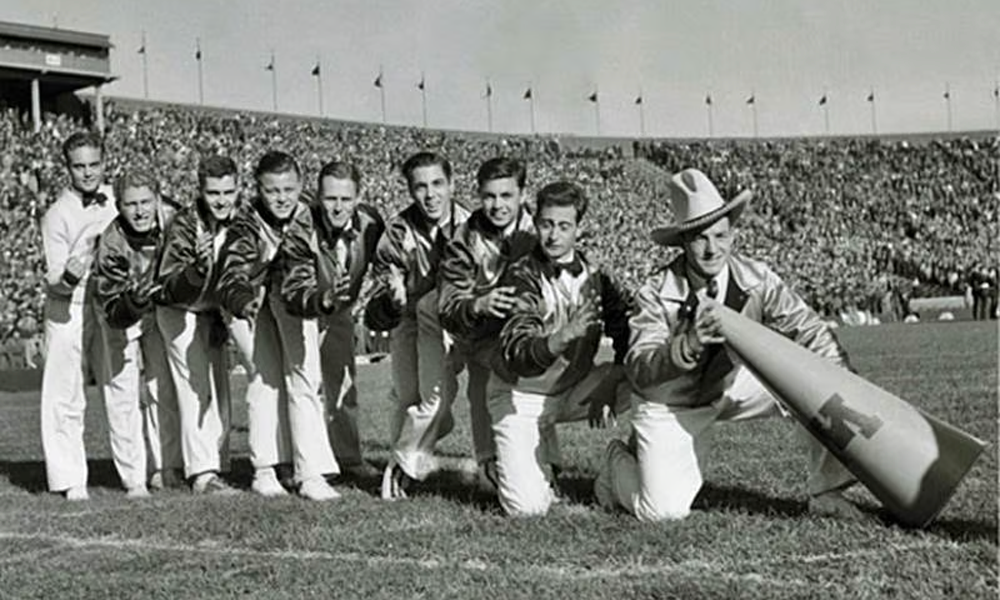Last night, the Cheer Daily Team was treated to an advanced screening of the highly anticipated movie, Backspot. As someone who has been deeply immersed in the cheerleading world and worked on various cheer films, including marketing for the Bring It On DVD releases, hosting red carpet interviews during filming at the Nfinity Champions League, and being promotional partners with the hit TV show Friday Night Lights, my expectations for any new cheer film are sky-high. So, when a new cheerleading movie hits the screens, I naturally hope for it to capture the thrilling essence of the sport. However, Backspot offers something quite different.
Release Date: May 31, 2024 | Nationwide
Rating: NR (USA) | PG (Canada)
Runtime: 1 hr 33m, Drama
Official Selection, 2023 Toronto International Film Festival
🍅: 82%
⭐️: 6.8 / 10
Tickets & Showtimes via AMC
Tickets & Showtimes via Fandango
Tickets & Showtimes via Alamo Drafthouse
Available On Demand:
Order via Amazon Prime Video
Order via Apple TV
Order via Fandango at Home
Backspot is not the film you turn to for dazzling cheer skills or an in-depth portrayal of the sport. Instead, it’s a poignant coming-of-age story about a young woman’s journey as a cheerleader and the complexities of dating another girl on her team. Directed by D.W. Waterson and written by Joanne Sarazen, the film features standout performances by Devery Jacobs and Evan Rachel Wood. This film shines a spotlight on LGBTQ+ relationships, presenting a love story that feels authentic and not the stereotypical portrayals often seen in mainstream media. While the narrative acknowledges the progress society has made towards accepting love in all its forms, it falls short of capturing the high-stakes intensity of competitive cheerleading.
This movie is not for the younger preteen audience. The best comparison would be a cheerleading-themed Call Me By Your Name. It delves into the life of a determined, ambitious cheerleader who is striving for acceptance, love, and the kind of relationship every 17-18-year-old yearns for. As a gay man, I found myself wishing I had grown up in the world depicted in Backspot. The film resonates deeply with anyone who has faced the anxieties and challenges of navigating relationships within the cheer community while grappling with their own identity.
Cheerleading has always been a sport with immense diversity, and Backspot underscores this aspect beautifully. For me, cheerleading was the perfect team sport to come to terms with my identity. It was my outlet when I needed a family and didn’t know who I was. My team always had my back, offering support and camaraderie that helped me navigate my journey of self-discovery.
One of the most significant aspects of Backspot is how it highlights the crucial yet often overshadowed role of a backspot in cheerleading. Backspots are the unsung heroes who ensure the safety and stability of their flyers, often without the recognition they deserve. This film brings attention to this essential position, giving it the spotlight that leaves you wanting more. Still, the portrayal of cheer routines and practice scenes lacks the authenticity and intensity that fans of the sport might expect.
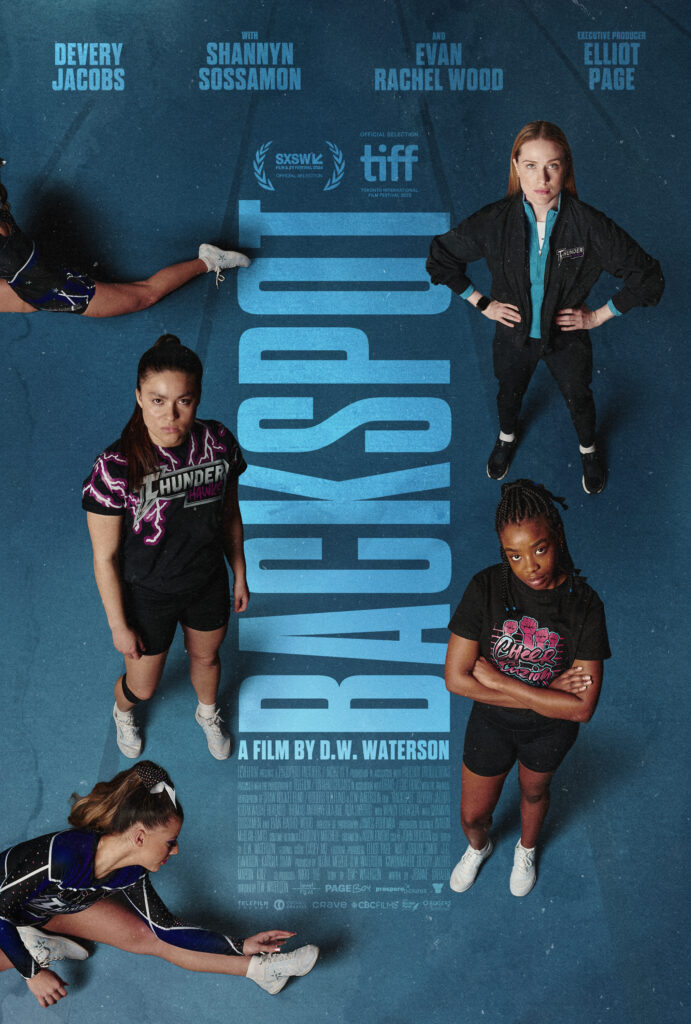
The film captures the universal struggle of making tough decisions and seeking acceptance, but from the unique perspective of an LGBTQ+ individual. It’s a story about self-discovery, ambition, and the relentless pursuit of love, something that anyone, regardless of their background, can relate to. Watching Backspot felt like revisiting the turbulent yet formative years of my own life, and it’s a testament to the film’s authenticity and emotional depth.
Backspot is rated NR (Not Rated) in the United States, rated PG in Canada, and there are some adult language and adult situations. One aspect of the film that I struggled with is the portrayal of the lesbian coach with characteristics unfitting to the role in most circumstances. It’s clear that Eileen, the coach, suffered from severe homophobia and the angst of growing up in a non-accepting society. This backstory adds depth to her character but also introduces a harshness that compounds Riley’s existing anxieties. As the protagonist already faces immense pressure and fear of failure, this additional tension might not sit well with all viewers.
Director D.W. Waterson’s vision for Backspot is deeply personal and inspired by their own experiences growing up in a sports-obsessed family. Waterson combines the elements of competitive cheerleading with the high-energy, punk aesthetic of their background as a DJ and music artist. Their collaboration with Cheer Fuzion All-Stars and co-producer Devery Jacobs over five years has resulted in a film that authentically portrays the challenges and triumphs of cheerleading, but it doesn’t quite capture the high-level intricacies of the sport.
In an exclusive interview with Devery Jacobs, who plays Riley and also serves as a producer on Backspot, she shared insights into her character and the film’s message. Jacobs described Riley as someone who “eats, sleeps, and breathes cheer.” As a backspot on her team, the Cheer Fuzion All Stars, Riley dreams of moving up to the Thunderhawks, which she eventually achieves in the film. Encountering her new coach, Eileen, played by the “ferocious Evan Rachel Wood,” Riley finds herself navigating a tough-love approach that forces her to reassess her relationships and her perfectionism.
Jacobs, a former competitive gymnast who couldn’t pursue cheer due to a knee injury, found training for Backspot fulfilling her cheerleading dream. Preparing for the role was physically demanding, requiring her to undergo physiotherapy, personal training, yoga, and daily stretching. Jacobs emphasized that this role allowed her to showcase the athleticism and camaraderie inherent in cheerleading, which contrasts with the solo nature of gymnastics.
Jacobs hopes Backspot will help audiences “stop underestimating cheerleaders.” She wants viewers to recognize cheerleading as a powerful sport involving injuries like concussions and broken bones but also characterized by love, camaraderie, and family. This message is crucial in shifting perceptions of cheerleading from mere support for male-dominated sports to acknowledging all-star cheerleaders as athletes in their own right.
In a conversation with DW Waterson, the director shared their inspiration and the message they hope Backspot conveys. Waterson was motivated to create the film after realizing how grueling the sport of cheerleading is beyond its pop culture representation. They hope audiences take away that cheerleaders are “badass and incredible athletes,” deserving of respect.
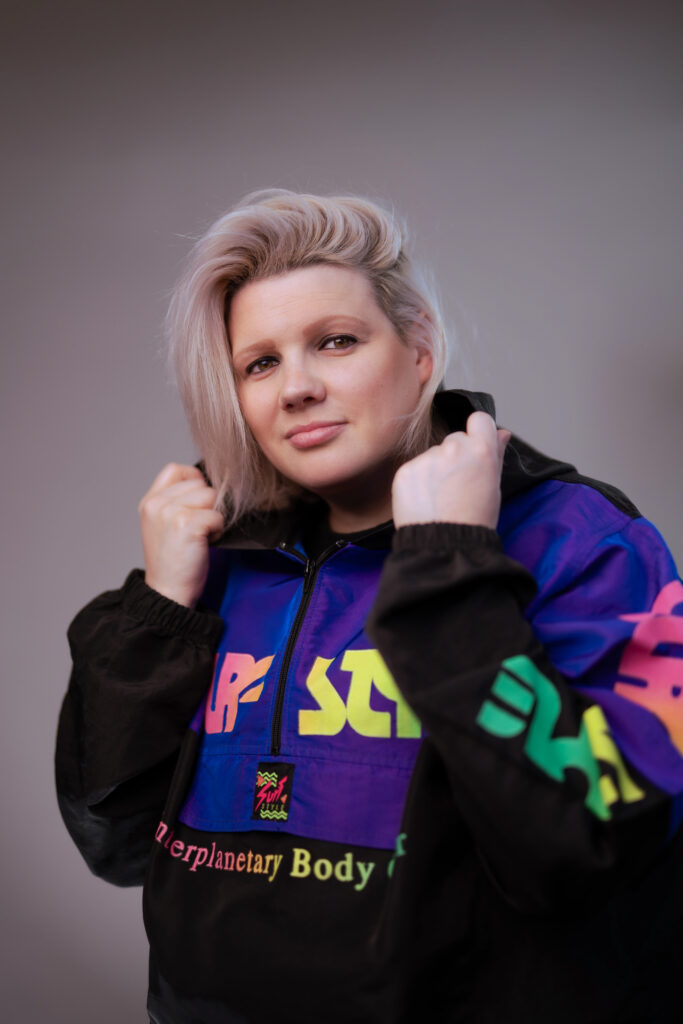
Waterson’s choice to portray Eileen as a tough coach was influenced by mentorships they’ve experienced. They explained that some mentors believe being hard on younger people prepares them for a tough world. Eileen’s rough exterior and tough-love approach stem from her own traumas and struggles, showcasing how not addressing mental health can negatively impact those around you.
The casting process for Backspot was rigorous, aiming to ensure authenticity by selecting athletes, not just actors. Waterson emphasized the importance of casting gymnasts, cheerleaders, and dancers, with training sessions before shooting to ensure everyone was comfortable with the moves. Cheer Fuzion All-Stars (of Canada) played a crucial role in the film, opening their gym for observation and supporting the production.
Filming Backspot presented unique challenges, particularly during the big finale, which required 14 full-outs in four hours. Waterson praised the dedication of the cast and crew, who relied on smoothie protein shots, Red Bull, and lasagna to maintain energy levels.
Watch the exclusive clip from Backspot, in theaters May 31, below:
Waterson highlighted the importance of queer representation in the film, aiming to show queer people being normal and participating in sports without conflict around their queerness. They wanted to depict a healthy, respectful relationship between Amanda and Riley, focusing on the challenges of cheerleading rather than trauma narratives.
Addressing the film’s rating and its suitability for younger audiences, Waterson reassured parents that while there is swearing and some mature themes, there is no violence or explicit content. They encouraged making it a family affair, using the film to open conversations about mental health and the pressures of sport.
As the sport of cheerleading continues to grow, I hope to see competitive cheer put more into the spotlight. Films like Backspot are a step in the right direction, highlighting the diversity and complexity of the cheerleading world, but there’s still a long way to go in showcasing the athleticism and dedication of competitive cheerleaders.
Backspot is a must-watch film for those seeking a heartfelt, relatable story that goes beyond the glitter and glam of cheerleading. It’s a film that portrays the journey of self-discovery and the quest for love and acceptance in a world that’s still learning to embrace diversity. Despite some reservations about certain character portrayals, the film’s overall message and emotional depth make it a colorful addition to the cheerleading genre.
Catch the film in theaters and On Demand May 31.
Are you passionate about cheerleading and love diving into the latest cheer movies? Don’t miss out on Backspot, a film that brings a fresh perspective to the sport and explores the complexities of love and identity. Join the conversation and share your thoughts on this groundbreaking film! Follow us on social media, and visit Cheer Daily for more reviews, news, and exclusive interviews.


